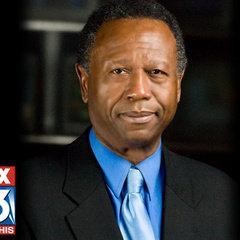No deity in the world could have made two men more divergent in character and approach to life than my two grandfathers: Joe “Sam” Moore and Elgie Briscoe Tapp.
I have waxed philosophical before about the beliefs of Grandpa Tapp. Growing up in Nashville at the turn of the 20th century as a child of mixed race, he smartly recognized and silently endured racism as an inherent part of society. Among the stories of blatant racial discrimination he told me as an adolescent, he docilely got off the sidewalk when he passed a white man and never directly looked him in the eyes.

He was among those in the 1920s who migrated to Chicago, where it was believed employment opportunities for black men could be readily found. He spent the next 30 years in the Windy City, and prospered by using his wits, a dependable manufacturing job at making railroad cars, and excelling at the lucrative but illegal production of bathtub gin during the Prohibition Era.
He was eventually able to buy apartment properties and afford to sport natty all-white “Panama” or colorful “Zoot” suits. With a fifth-grade education, he at that point didn’t have to worry anymore how repugnant such outfits might be to white folks. But, his success never tempered his evolved belief that men of any color should always carry themselves with a class and dignity no amount of money could buy.
In contrast, for fire and passion in life, there was nobody like Joe. I didn’t meet him until my mother remarried after my biological father’s death when I was two. Unlike my light-skinned and green-eyed Grandpa Tapp, Grandpa Joe’s skin was coal black. He had dark, fiery eyes that when they locked in on you seemed to penetrate your very soul. He was a Missouri farmer who’d never been to any city. He was the undisputed and outspoken patriarch of 13 children. He was the same age as Grandpa Tapp, but he was harder, tougher, and possessed a sense of defiance that exuded from every pore of his being. He had never feared white men. He worked hard. He played hard. The only “suit” he ever knew was playing cards when he held court during combative games of bid whist with his adult children, or on rare occasions, when grandchildren like me were told to babysit hands until a player came back from the bathroom. Take it from me: Hearing him voicing his disdain for you at the table was to be avoided at all cost.
We approached their first-ever meeting with all the anticipation that heavyweight championship fights used to draw. Joe was expected to throw nothing but verbal haymakers. Grandpa Tapp was expected to duck and counter. Surely, there would be nothing these two men could ever agree on. Especially when the opening salvo from Joe included the phrase “Uncle Tom” in direct reference to Grandpa Tapp. Absorbing the shot, Grandpa Tapp immediately scurried to take the high ground by asking if Joe knew anything about the civil rights movement and a man named Martin Luther King Jr. Grandpa Joe sniffed, “He ain’t no farmer I’ve ever heard of.” As the only grandchild who opted to sit in on this summit, I knew this wasn’t going very well. But, when all seemed lost, it was Grandpa Joe, of all people, who found a common ground for discussion. He asked, “So Tapp, what are you planting this year? Wheat or corn?” Grandpa Tapp said, “What would you suggest?” Suddenly avenues of conversation were open.
There is common ground for all of us. There always has been. From whatever our backgrounds are, there have forever been platforms of unadulterated free thought and an exchange of ideas that remain untapped because of our own prejudices, self-interests, and political posturing. It’s led to our abject failure to listen to one another. Nobody wants those who have loyally served for years in Memphis public safety to feel betrayed. But, taxpayers in this city shouldn’t be financially burdened by the neglect of past city administrations. We have a problem in this city that’s no different than any other urban location in America. It’s communication. Be willing to give full consideration to the ideas and opinions of others without prejudice. Find a compromise.
Plant wheat or plant corn? Both have the potential for growth.